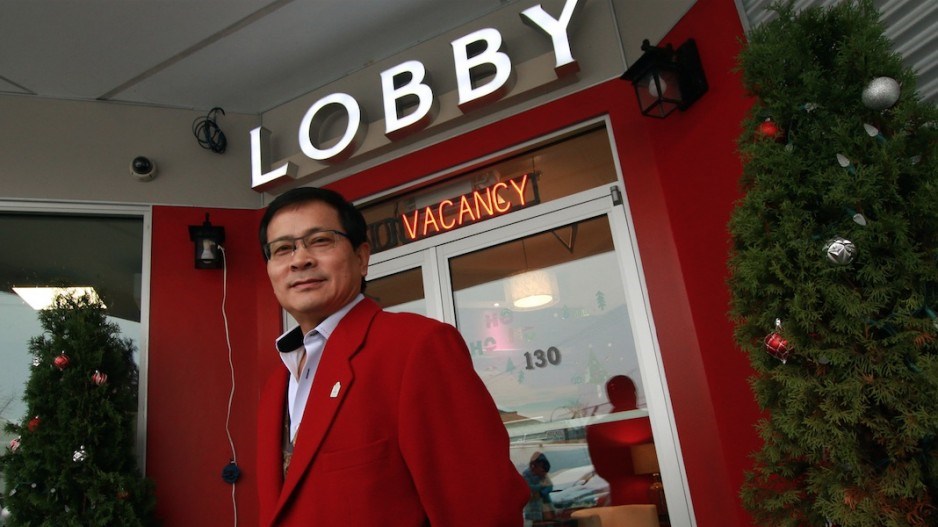Raising awareness about a new hospitality business is a challenge best tackled by using a range of marketing strategies, according to Queens Hotel owner Wallie Sohl, who launched his business in May 2017.
“We’ve advertised in the local newspaper and we’ve done some direct marketing flyers to homes and businesses – about 9,000 pieces,” he said. “We’ve also got promotional cards that are in those racks that they have at the airport and at border crossings. That costs $1,100 per year through Certified Folder Display Service.”
The hotel is 59 years old but it has been extensively renovated from its last incarnation.
Sohl’s marketing strategy has focused on Queens being the only hotel in New Westminster’s Queensborough district, and he has targeted a wide range of potential customers including business travellers, relatives of nearby residents and workers at adjacent businesses.
One of Sohl’s plans is to buy advertising on Facebook (Nasdaq:FB) to sell hotel packages that include a night’s stay as well as tickets for major concerts this spring, such as the Eagles or Rod Stewart.
When snowstorms are forecast, he plans to use Facebook to market his hotel to people who work in the area and do not want to drive home.
Mitchell Fawcett, 6S Marketing’s vice-president of partnerships and social strategy, said a technique known as “radius targeting” can ensure that Facebook ads appear only in the timelines of people who are using smartphones within a radius of several kilometres.
“Facebook is certainly the most sophisticated tool that can accomplish that,” he said. “Instagram, which is part of the Facebook network, can follow similar targeting on the Instagram platform.”
Expedia Inc.’s (Nasdaq:EXPE) Hotwire brand, which provides discounted deals for last-minute stays, is available only for U.S.-based hotels, so Fawcett suggested that if Sohl wanted to advertise on an app like Hotwire, he could try the independently owned Hotel Tonight, which is available in Canada.
Sohl is also considering advertising on weather apps, such as one run by the Weather Channel, because they get more traffic when snowstorms are forecast.
Expedia, however, is a must, “because people have a perception that this is where the deals are.”
Sohl said an Expedia representative checked out his hotel within weeks of its opening, and the business was almost immediately on the online travel platform’s many branded sites, which include Hotels.com, Orbitz and Travelocity.
He also advertises on sites run by Expedia’s competitor, Priceline Group Inc. (Nasdaq:PCLN), such as Booking.com.
A drawback with marketing through online travel conglomerates is that they charge significant commissions.
Originally, Expedia took a 15% commission on all sales through its websites. Then, in November, the company urged Sohl to upgrade to an 18% commission and what its representatives call Expedia Travel Preference – a service that allows customers to pay online at the time of booking or later at the hotel.
“I don’t really see much of a difference in our listing online,” Sohl said.
“But I’m paying the extra amount because they have stats to show that our sales [through the websites] are going up.” •




